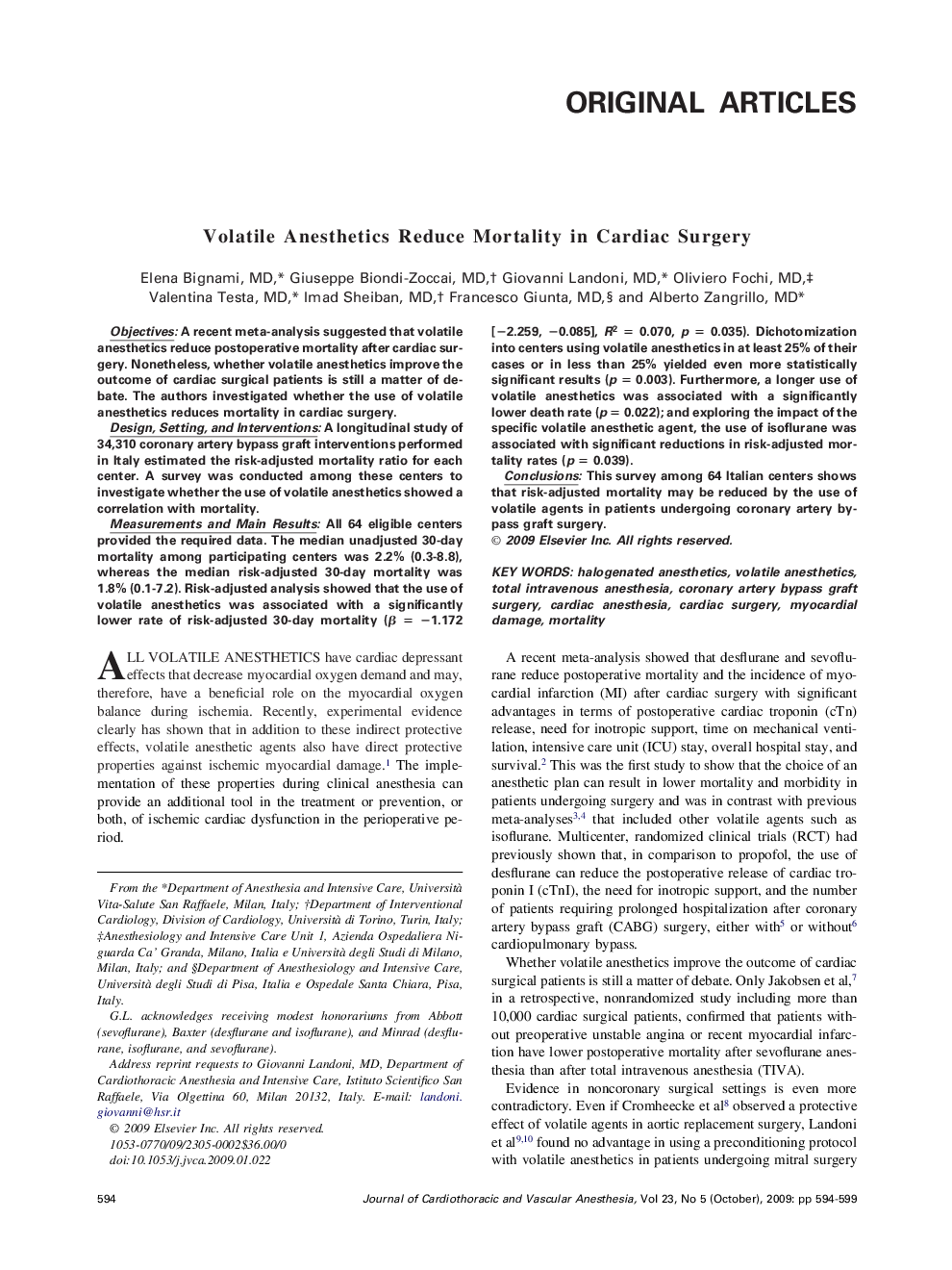| Article ID | Journal | Published Year | Pages | File Type |
|---|---|---|---|---|
| 2760392 | Journal of Cardiothoracic and Vascular Anesthesia | 2009 | 6 Pages |
ObjectivesA recent meta-analysis suggested that volatile anesthetics reduce postoperative mortality after cardiac surgery. Nonetheless, whether volatile anesthetics improve the outcome of cardiac surgical patients is still a matter of debate. The authors investigated whether the use of volatile anesthetics reduces mortality in cardiac surgery.Design, Setting, and InterventionsA longitudinal study of 34,310 coronary artery bypass graft interventions performed in Italy estimated the risk-adjusted mortality ratio for each center. A survey was conducted among these centers to investigate whether the use of volatile anesthetics showed a correlation with mortality.Measurements and Main ResultsAll 64 eligible centers provided the required data. The median unadjusted 30-day mortality among participating centers was 2.2% (0.3-8.8), whereas the median risk-adjusted 30-day mortality was 1.8% (0.1-7.2). Risk-adjusted analysis showed that the use of volatile anesthetics was associated with a significantly lower rate of risk-adjusted 30-day mortality (β = −1.172 [−2.259, −0.085], R2 = 0.070, p = 0.035). Dichotomization into centers using volatile anesthetics in at least 25% of their cases or in less than 25% yielded even more statistically significant results (p = 0.003). Furthermore, a longer use of volatile anesthetics was associated with a significantly lower death rate (p = 0.022); and exploring the impact of the specific volatile anesthetic agent, the use of isoflurane was associated with significant reductions in risk-adjusted mortality rates (p = 0.039).ConclusionsThis survey among 64 Italian centers shows that risk-adjusted mortality may be reduced by the use of volatile agents in patients undergoing coronary artery bypass graft surgery.
